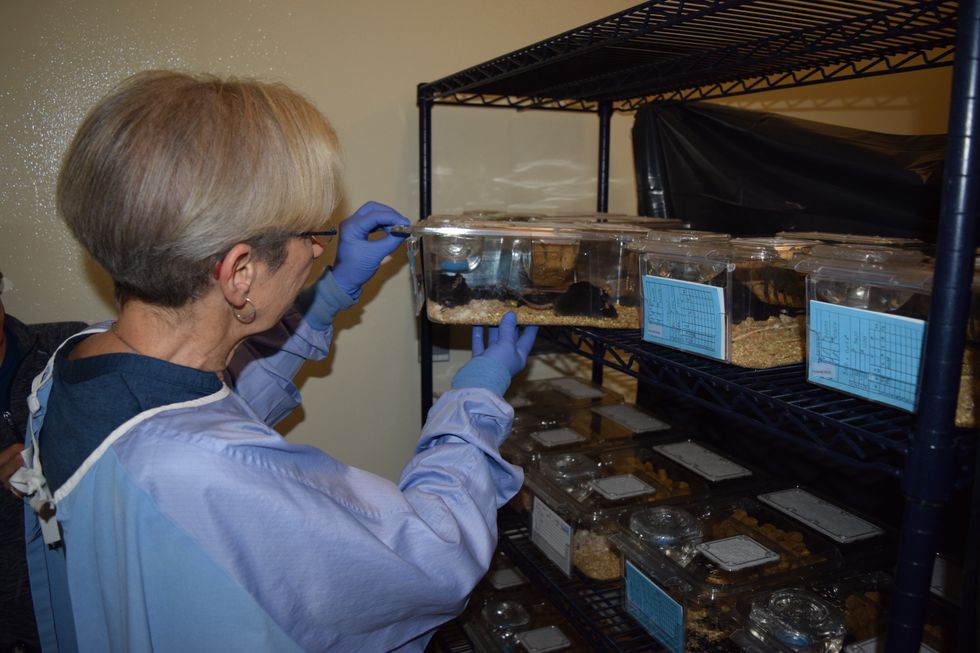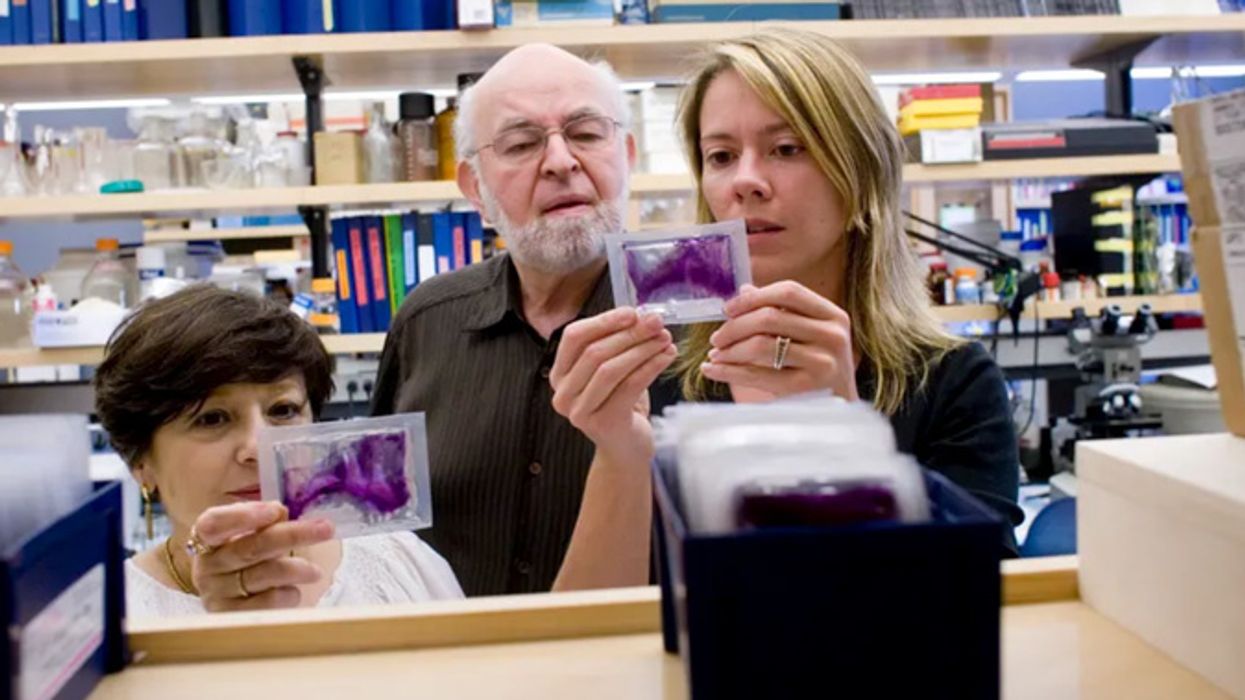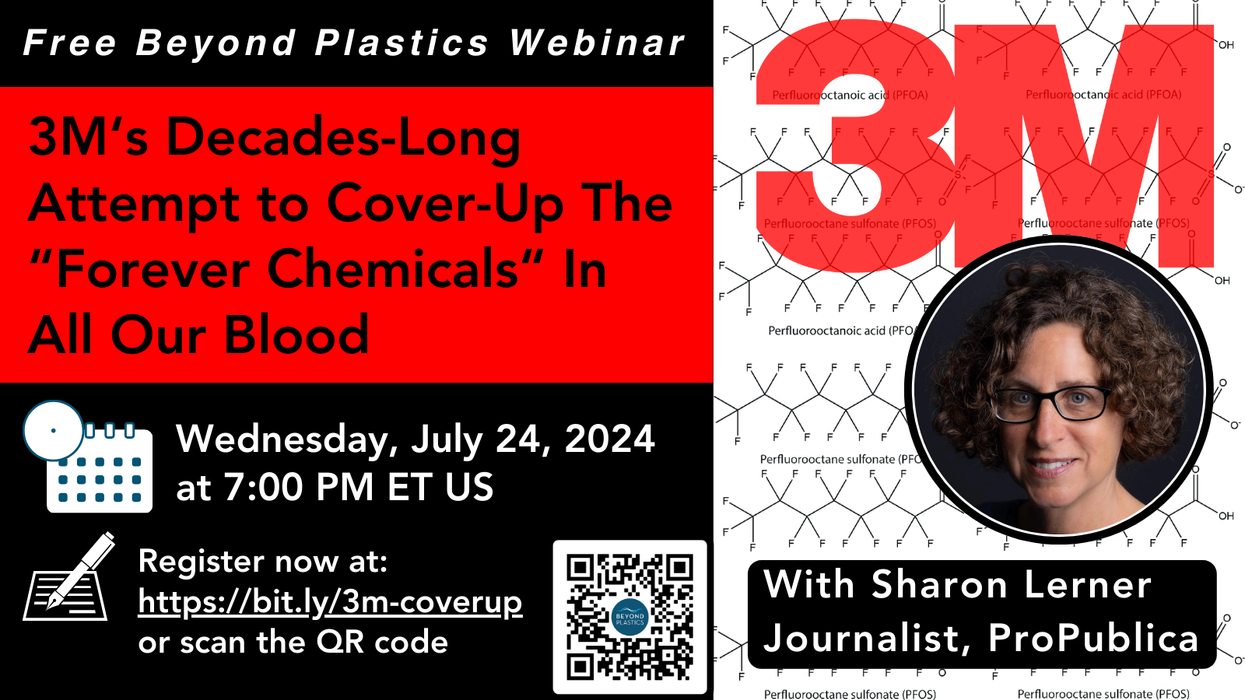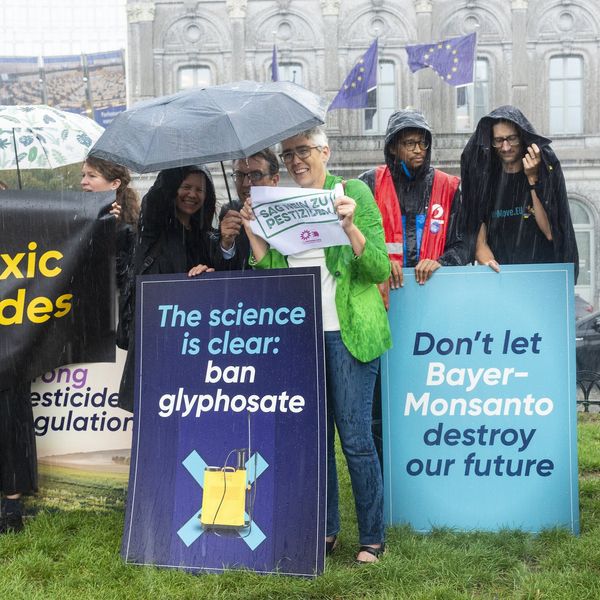We all are exposed daily to bisphenol-A (BPA) and other bisphenols – estrogen-like substances added to food can liners, paper receipts and plastic containers.
That exposure, according to research that regulators are willfully ignoring, is increasingly linked to harmful health impacts ranging from birth defects to cancer.
A year-long investigation by EHN finds that the U.S. Food and Drug Administration has stacked the deck against such findings from independent scientists studying BPA – as well as many compounds used in "BPA-free" products.
Exposed: The BPA Experimentwww.youtube.com
Hundreds of emails obtained via the Freedom of Information Act and dozens of interviews show that science is being perjured:
- FDA and industry scientists continue to use decades-old study methods that fail to detect effects known to be associated with BPA exposure;
- Emails between federal employees suggest an effort to ignore evidence of harm;
- Biased data interpretation methods by the FDA;
- Sharp disagreement between the FDA regulators and health officials at the National Institutes of Health on the safety of BPA and what messages are relayed to the public.
Significantly, the FDA's maneuvering to keep BPA unregulated extends a similar "get out of jail free" card to thousands of other suspected hormone-altering compounds.
"Their failure to use modern science in examining the risk of BPA and other bisphenols leaves the health of the American public at significant risk," said Pete Myers, founder and chief scientist at Environmental Health Sciences, which publishes EHN.
EHN is an award-winning nonpartisan organization dedicated to driving science into public discussion and policy. Read the four-part series below, as well as a comic strip interpretation of the investigation.
And follow the fallout from this investigation on Twitter at the hashtag: #ExposedBPA
Part 1: Scientific stalemate over BPA impacts on our body

A scientific stalemate leaves our hormones and health at risk
American industry, aided by federal regulators, is conducting a large-scale, consequential experiment with our hormones and the developing brains and reproductive systems of our children.
Part 2: BPA explained, as a mini graphic novella

Clouded in Clarity: A comic on chemicals & controversy
The ongoing health concerns and mixed messaging over the chemical BPA
Part 3: BPA research honesty

On the edge of research honesty
Is a federal study of BPA contaminated by questionable motives, methods?
Part 4: Federal BPA standards decades past their expiration date

Deciphering the real message about BPA
"The government keeps testing chemicals for safety using the same old approaches developed 50 years ago"
Part 5: A BPA-free future

Toward a BPA-free future
What will it take to rid our store shelves of BPA and its equally hazardous cousins?
Follow up BPA coverage

Federal tests 'dramatically' undercount BPA and other chemical exposures
Researchers say federal agencies use highly inaccurate tests to estimate exposure to BPA—findings that extend to multiple other harmful chemicals that get into our bodies

FDA under scrutiny: Policymakers, advocates push for stronger science, regulation of the chemical BPA
"The mindless clinging to outdated science is detrimental to public health and to the development of good science"

BPA and babies: Controversial chemical and substitutes pollute the womb
Babies are being exposed to "totally unacceptable concentrations"

More bad news for BPA: Novel analysis adds to evidence of chemical's health effects
"This should change how the FDA and other people look at the safety of BPA."
- Endocrine disrupting chemicals are an “under-appreciated” diabetes risk factor - EHN ›
- BPA use in doubt as Europe seeks protective health limits - EHN ›
- Get BPA out of food packaging, US health professionals tell feds - EHN ›
- The toxic chemical limbo game - EHN ›
- Prenatal exposure to toxics risks delay of child’s brain development - EHN ›
- The hidden, potential cancer-causing, danger in woodworking and art supplies - EHN ›
- The hidden, potential cancer-causing, danger in woodworking and art supplies - EHN ›
- Are we getting dumber? - EHN ›
- What are endocrine-disrupting chemicals? - EHN ›
- BPA exposure likely exceeds health limits - EHN ›
- Regulating chemicals by class: A task of surgical precision - EHN ›
- Federal tests 'dramatically' undercount BPA and other chemical exposures - EHN ›


























